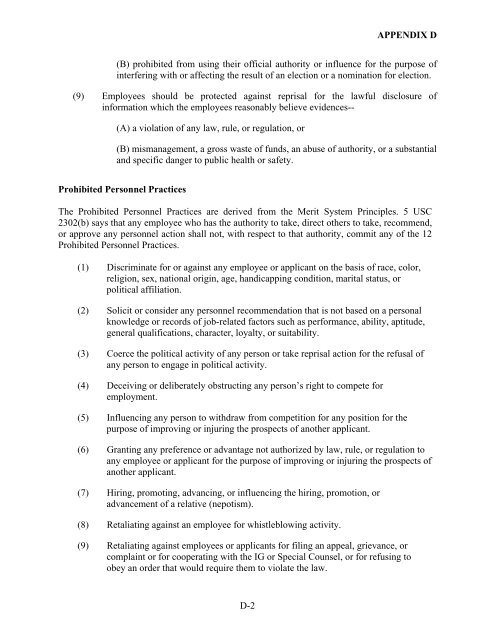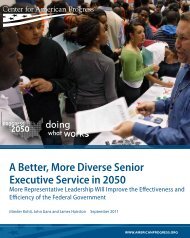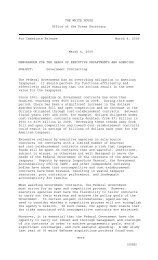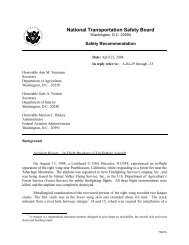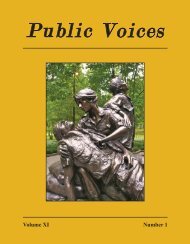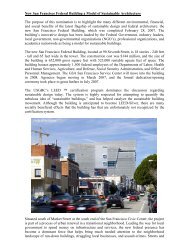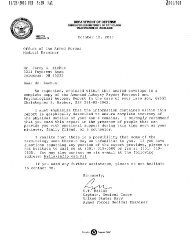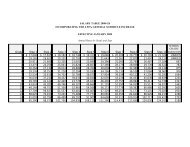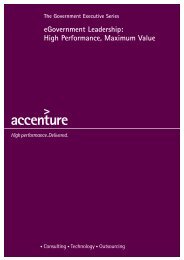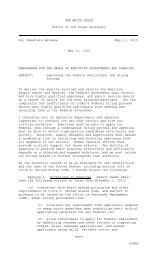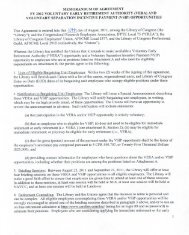Report - Government Executive
Report - Government Executive
Report - Government Executive
You also want an ePaper? Increase the reach of your titles
YUMPU automatically turns print PDFs into web optimized ePapers that Google loves.
APPENDIX D<br />
(B) prohibited from using their official authority or influence for the purpose of<br />
interfering with or affecting the result of an election or a nomination for election.<br />
(9) Employees should be protected against reprisal for the lawful disclosure of<br />
information which the employees reasonably believe evidences--<br />
(A) a violation of any law, rule, or regulation, or<br />
(B) mismanagement, a gross waste of funds, an abuse of authority, or a substantial<br />
and specific danger to public health or safety.<br />
Prohibited Personnel Practices<br />
The Prohibited Personnel Practices are derived from the Merit System Principles. 5 USC<br />
2302(b) says that any employee who has the authority to take, direct others to take, recommend,<br />
or approve any personnel action shall not, with respect to that authority, commit any of the 12<br />
Prohibited Personnel Practices.<br />
(1) Discriminate for or against any employee or applicant on the basis of race, color,<br />
religion, sex, national origin, age, handicapping condition, marital status, or<br />
political affiliation.<br />
(2) Solicit or consider any personnel recommendation that is not based on a personal<br />
knowledge or records of job-related factors such as performance, ability, aptitude,<br />
general qualifications, character, loyalty, or suitability.<br />
(3) Coerce the political activity of any person or take reprisal action for the refusal of<br />
any person to engage in political activity.<br />
(4) Deceiving or deliberately obstructing any person’s right to compete for<br />
employment.<br />
(5) Influencing any person to withdraw from competition for any position for the<br />
purpose of improving or injuring the prospects of another applicant.<br />
(6) Granting any preference or advantage not authorized by law, rule, or regulation to<br />
any employee or applicant for the purpose of improving or injuring the prospects of<br />
another applicant.<br />
(7) Hiring, promoting, advancing, or influencing the hiring, promotion, or<br />
advancement of a relative (nepotism).<br />
(8) Retaliating against an employee for whistleblowing activity.<br />
(9) Retaliating against employees or applicants for filing an appeal, grievance, or<br />
complaint or for cooperating with the IG or Special Counsel, or for refusing to<br />
obey an order that would require them to violate the law.<br />
D-2


